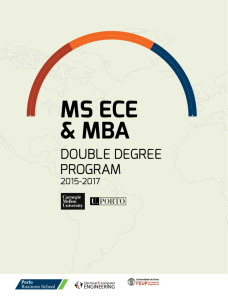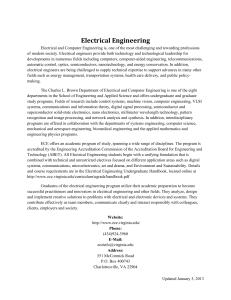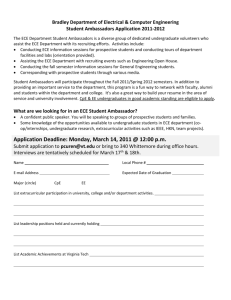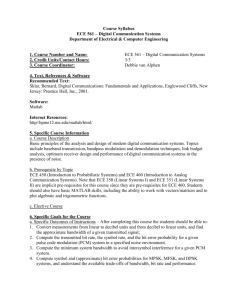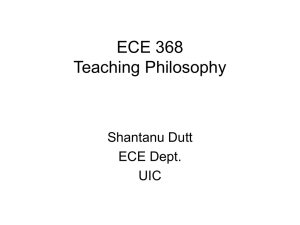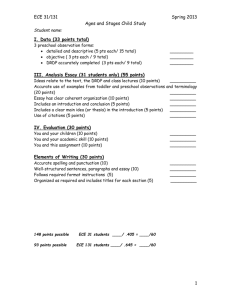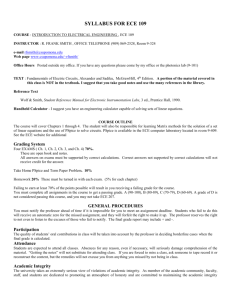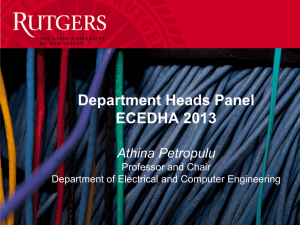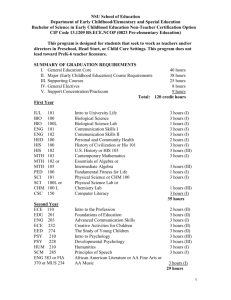ECE 262 - Des Moines Area Community College
advertisement
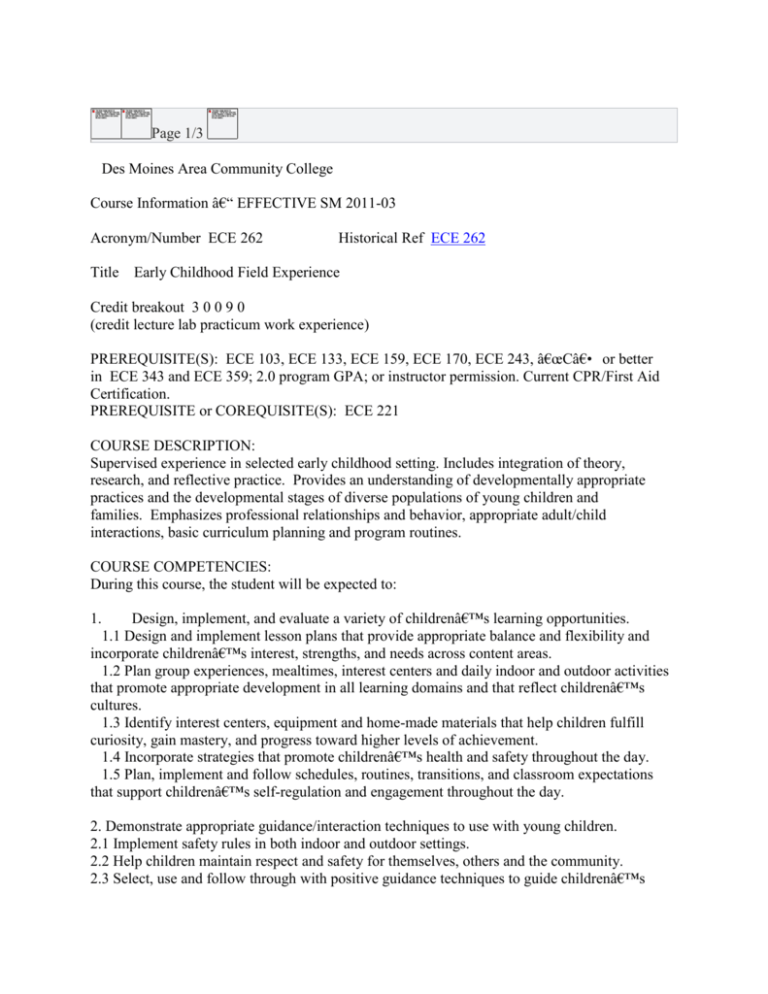
Page 1/3 Des Moines Area Community College Course Information – EFFECTIVE SM 2011-03 Acronym/Number ECE 262 Historical Ref ECE 262 Title Early Childhood Field Experience Credit breakout 3 0 0 9 0 (credit lecture lab practicum work experience) PREREQUISITE(S): ECE 103, ECE 133, ECE 159, ECE 170, ECE 243, “C― or better in ECE 343 and ECE 359; 2.0 program GPA; or instructor permission. Current CPR/First Aid Certification. PREREQUISITE or COREQUISITE(S): ECE 221 COURSE DESCRIPTION: Supervised experience in selected early childhood setting. Includes integration of theory, research, and reflective practice. Provides an understanding of developmentally appropriate practices and the developmental stages of diverse populations of young children and families. Emphasizes professional relationships and behavior, appropriate adult/child interactions, basic curriculum planning and program routines. COURSE COMPETENCIES: During this course, the student will be expected to: Design, implement, and evaluate a variety of children’s learning opportunities. 1.1 Design and implement lesson plans that provide appropriate balance and flexibility and incorporate children’s interest, strengths, and needs across content areas. 1.2 Plan group experiences, mealtimes, interest centers and daily indoor and outdoor activities that promote appropriate development in all learning domains and that reflect children’s cultures. 1.3 Identify interest centers, equipment and home-made materials that help children fulfill curiosity, gain mastery, and progress toward higher levels of achievement. 1.4 Incorporate strategies that promote children’s health and safety throughout the day. 1.5 Plan, implement and follow schedules, routines, transitions, and classroom expectations that support children’s self-regulation and engagement throughout the day. 1. 2. Demonstrate appropriate guidance/interaction techniques to use with young children. 2.1 Implement safety rules in both indoor and outdoor settings. 2.2 Help children maintain respect and safety for themselves, others and the community. 2.3 Select, use and follow through with positive guidance techniques to guide children’s behavior. 2.4 Demonstrate flexibility in guidance of individual children. 2.5 Support the development of children’s healthy self-concept and self-esteem. 3. Practice a variety of assessment techniques in partnership with families and other professionals. 3.1 Observe, assess and document the growth and development of individual children. Next Page Find Go to Page Thumbnail Index Image View Download a Copy Close

